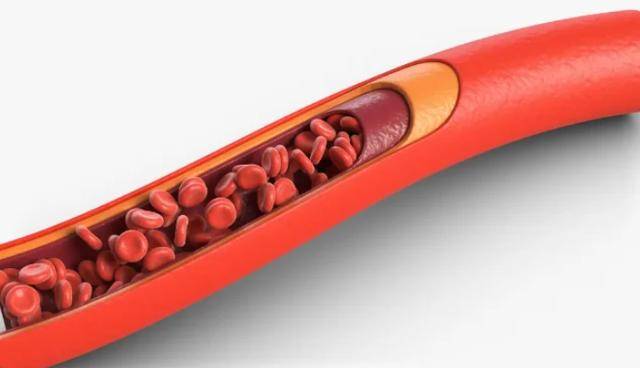Blood vessels are like traffic on a road, delivering nutrients to organs and tissues throughout the body to maintain normal bodily functions and operations along with blood.
Many refer to blood vessels as the “candles of life,” mainly because as people age, blood vessels gradually become fragile and stiff.
Especially for individuals over 45 years old, the prolonged presence of unhealthy habits can easily lead to vascular damage, hence many believe that “caring for blood vessels equals caring for life.”
What nutrients does peanuts contain?
Protein: Peanuts are plant-based foods rich in protein. Raw peanuts contain about 26 grams of protein per 100 grams.
Fat: Peanuts contain high levels of unsaturated fatty acids such as oleic acid and linoleic acid. These fatty acids are beneficial for heart health and can help control cholesterol.
Carbohydrates: Peanuts are rich in carbohydrates. Raw peanuts contain about 16 grams of carbohydrates per 100 grams.
Fiber: Peanuts are rich in fiber, which promotes digestive system health.
Vitamins and Minerals: Peanuts are rich in various vitamins and minerals, such as vitamin E, selenium, copper, manganese, etc.
Eat a few peanuts on an empty stomach every morning for half a month, and these 4 benefits may naturally follow:
1. Enhances brain function
Phosphatidylcholine in peanuts is an essential component for brain development and maintaining normal function. Consuming peanuts on an empty stomach allows better absorption and utilization of phosphatidylcholine, enhancing memory and cognitive abilities, which is crucial for students and professionals to cope better with learning and work challenges.
2. Nourishes the spleen and stomach
From the perspective of traditional Chinese medicine, peanuts can nourish the spleen, moisturize the lungs, nourish the middle, and benefit Qi. Peanuts contain a large amount of phytoestrogens and resveratrol, natural polyphenols with antibacterial, anti-inflammatory, and antioxidant effects that can strengthen the digestive system.
3. Provides calcium supplementation
According to research by relevant scientific institutions, peanuts are rich in calcium, making them excellent for calcium supplementation. Consuming peanuts abundantly can easily supply the body with the required calcium, especially beneficial for the elderly and children who have a high demand for calcium.
Due to aging, calcium loss occurs in the elderly, while children need ample calcium for bone growth. Thus, consuming peanuts is highly beneficial for them.
4. Prevents stroke
An often overlooked benefit of peanuts is their ability to promote vascular health, improve blood circulation, and reduce the risk of ischemic stroke and stroke in the elderly.
Is frequent peanut consumption beneficial or harmful to blood vessels?
The American Heart Association shared a compelling study on their official website. During a 15-year study involving over 74,000 Japanese adults aged 45 to 74, researchers observed a significant reduction in the risk of ischemic stroke, stroke, and cardiovascular disease among participants who consumed 4 peanuts daily compared to those who did not consume peanuts at all.
This study strongly proves that moderate peanut consumption is indeed beneficial for maintaining cardiovascular health. Moreover, according to the 2022 edition of the “Chinese Residents’ Dietary Guidelines,” adults are recommended to consume around 10 grams of nuts daily.
Doctors: Protect your blood vessels, stay away from 3 items
1. Noodles
For people in northern China, noodles are an essential staple in daily life, providing not only nutrition but also fulfilling culinary desires. However, excessive consumption of noodles, rich in carbohydrates, can lead to increased blood viscosity, potentially damaging blood vessels and causing cardiovascular problems.
2. Pickled vegetables
Pickled vegetables such as pickled green beans, pickled radishes, pickled cabbage, kimchi, pickled radish strips, etc., are high in salt content. Excess sodium intake can lead to water-sodium retention, inducing hypertension, unstable internal pressure, rapid vasoconstriction, insufficient brain oxygen supply, and increased risk of stroke.
3. Alcoholic foods
Alcoholic beverages and foods containing alcohol are common on dining tables, but excessive alcohol consumption can irritate blood vessel walls, leading to lipid and blood pressure elevation, arteriosclerosis, and increased risks of stroke, thrombosis, and brain infarction.
How to scientifically protect blood vessels? By doing these 3 things regularly, blood vessels may gradually regain elasticity
1. Maintain physical activity
To maintain healthy blood vessels, avoid prolonged inactivity and engage in appropriate physical exercise. Exercise can protect blood vessels and prevent blood clots, strokes, and heart attacks. Choose suitable activities based on fitness levels for scientific exercise benefits.
2. Prepare healthy recipes
Caring for blood vessels requires attention to diet. While precise meal planning may be challenging, focusing on daily and weekly total nutrition intake is more practical and flexible.
3. Hydrate sufficiently
Protecting blood vessels also involves adequate hydration to promote health through increased water intake. Regular hydration enhances metabolism, preventing harmful substances from accumulating and maintaining optimal body function.


